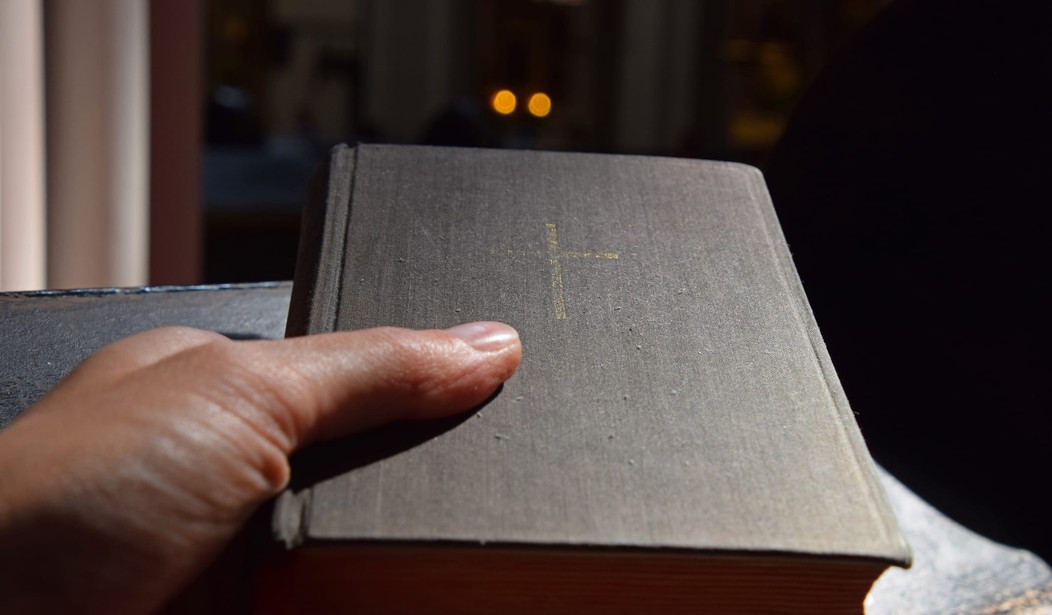In 1954, Congress passed the Johnson Amendment forbidding 501(c)(3) non-profit organizations from openly endorsing political candidates. Alongside other non-profit organizations, churches that violate the Johnson Amendment risk having their non-profit status revoked by the IRS. Inserted into the Internal Revenue Code of 1954, the Johnson Amendment has been fairly uncontroversial until recent years. Starting in the 2000s, a growing number of religious and conservative leaders have called for its repeal. President Donald Trump promised to repeal it earlier this year. And in a new survey sponsored by Alliance Defending Freedom and conducted by LifeWay Research, a majority of Protestant pastors believe that the IRS shouldn’t be allowed to punish churches over sermon content.
While the Johnson Amendment is currently a political hot-button issue, LifeWay Research points out that:
Only one congregation has lost its tax-exempt status due to the Johnson Amendment. That happened in 1995, after the Church at Pierce Creek near Binghamton, N.Y., ran newspaper ads opposing Bill Clinton’s 1992 presidential bid. Other churches have been investigated for the content of their sermons, including All Saints Episcopal Church in Los Angeles, after a preacher there criticized President George W. Bush days before the 2004 election.
Still, the IRS warns churches to steer clear of direct involvement in campaigns. And since 2008, the ADF has been challenging the restriction on endorsements through a series of annual ‘Pulpit Freedom’ Sundays.
Many pastors who responded to the survey don’t believe that it’s appropriate for sermons to include political endorsements. Simply, as ADF Legal Counsel Christiana Holcomb explains, “This poll demonstrates that religious leaders don’t want to be burdened by the continual threat of an IRS investigation and potential penalties based simply on what they say from the pulpit.”
LifeWay Research found widespread opposition to any government penalties for the content of a preacher’s sermons. Ninety-one percent of pastors agree with the statement, ‘Pastors should have the right to speak freely from the pulpit without the fear of being penalized by the government.’ That includes 77 percent of pastors who strongly agree. Six percent of pastors disagree. Three percent are not sure.
Among those who agree:
- 96 percent of pastors at larger churches (those with 250 or more attenders).
- 88 percent of pastors at small churches (those with fewer than 50 attenders).
- 86 percent of pastors ages 18 to 44.
- 93 percent of pastors 45 and older.
- 96 percent of evangelical pastors.
- 85 percent of mainline pastors.
The survey of 1,000 protestant pastors did reveal small divides, though. Some of LifeWay’s other findings include:
- Pastors in the South (77 percent) are more likely to agree than pastors in the Northeast (66 percent).
- Evangelical pastors (84 percent) are more likely to agree than mainline pastors (58 percent).
- Baptist (86 percent), Pentecostal (93 percent) and Holiness (91 percent) pastors are more likely to agree than Lutheran (61 percent), Methodist (56 percent) and Presbyterian/Reformed (61 percent) pastors.
LifeWay Research points out that the vast majority of churchgoers, as well as pastors, don’t want political endorsements included in sermons. Nearly 80 percent believe that pastors shouldn’t endorse candidates from the pulpit. In the words of LifeWay Research’s Executive Director Scott McConnel: “But when they do address political candidates, they don’t believe it is the government’s business. There’s very strong support for Congress to make sure the IRS isn’t policing sermons.”









Join the conversation as a VIP Member